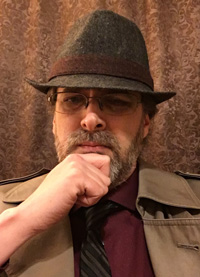Chasing Wisdom
 Like many people of my generation, I enjoyed the illusion of privacy in my callow and misspent youth. I say “illusion” because even then your information was available to those who wanted to spend the time and effort to find it, but that involved work. Most people don’t like work.
Like many people of my generation, I enjoyed the illusion of privacy in my callow and misspent youth. I say “illusion” because even then your information was available to those who wanted to spend the time and effort to find it, but that involved work. Most people don’t like work.
In the years after 9/11, the illusion of privacy ended.
Terrorists brought down the towers. The enemy could be hiding in plain sight. Working in our factories. Attending our schools. Living in our neighborhoods.
Informing on someone changed from being a snitch or a tattletale to just looking out for everyone. “If you see something, say something” became the rule.
If everyone is watching everyone, why should we care if the government is scanning phone calls, emails and other communications?
If I have nothing to hide, what does it matter who looks?
There are not many steps between that idea and accepting that corporations can monitor your electronic activities. They might even give you a coupon if you tell them it is ok to track and catalog everything you do on your computer or phone.
They will certainly give you in-store discounts for giving them your address, email, phone number and using the little discount card that lets them track every purchase you make. And those little discounts tailored for me are so convenient.
We were a nation of people who valued privacy and now we just don’t care much. We want to feel safe and we want coupons.
Strangely, with less privacy we Americans became more isolated and a bit paranoid about strangers.
One reason for the social isolation is the cell phone. If you stop to offer help to someone on the side of the road, you are often met with suspicion now.
Another reason for our social isolation is the rise of social media. Why bother to call or visit when you can text or post anything instantly?
A more subtle reason is the generalized suspicion of anyone outside our known circle of friends and family.
We became a little more distant from one another and strangers became … well … strange.
Social isolation is clearly bad, but right now “social distancing” is good.
Safety now involves physical distance, avoiding public gatherings, stocking up on supplies in case we are ordered to stay home either more strictly or for longer than we except.
Freedom from fear of COVID-19 is purchased in isolation and in making the circle of people we are willing to touch ever smaller.
Don’t shake hands. Don’t go out unless it is necessary. Work from home if you can. Do not go to restaurants or plays or concerts or movies or church.
This pandemic will end as they all do. Life will go back to something close to what it was. But how close?
My question is this: What subtle yet sweeping changes will we see in the years after COVID-19?
